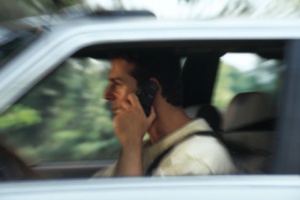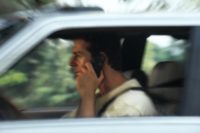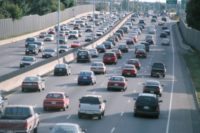 Most people are fine with texting or cell phone use while they're driving -- but they don't feel safe when they're the passenger and someone else is doing the texting or cell phone talking.
Most people are fine with texting or cell phone use while they're driving -- but they don't feel safe when they're the passenger and someone else is doing the texting or cell phone talking.
That paradox emerged in a new national NHTSA survey about how people perceive the safety risks of distracted driving. Survey respondents indicated they answer calls on most trips and acknowledge few driving situations when they would not use the phone or text. However, they feel unsafe when riding in vehicles in which the driver is texting and they support bans on texting and cell phone use.
The NHTSA says the findings highlight the complexity of distracted driving: that it's both hard to measure and difficult to address given conflicting public attitudes and behaviors.
"The findings from our new attitude survey help us understand why some people continue to make bad decisions about driving distracted—but what's clear from all of the information we have is that driver distraction continues to be a major problem," said Administrator Strickland. "We need to maintain our focus on this issue through education, laws, enforcement, and vehicle design to help keep drivers' attention on the road."
Among the findings, more than three-quarters of drivers report that they are willing to answer calls on all, most, or some trips. Drivers also report that they rarely consider traffic situations when deciding when to use their phone.
While most drivers said they are willing to answer a call and many will send a text while driving, almost all of these same drivers reported that they would feel very unsafe as a passenger if their driver was sending or receiving text messages. Over one-third report that they would feel very unsafe if their driver was using a handheld phone.
New survey shows conflicting attitudes about distracted driving



